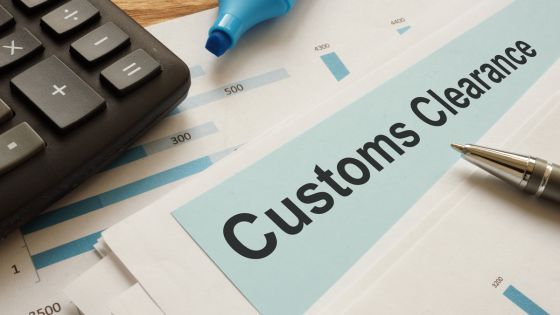When it comes to importing goods into Australia, navigating the customs clearance process is crucial. To ensure a smooth entry for your products, you need to be well-versed in the required documentation. In this article, we will explore the essential documents necessary for customs clearance into Australia. Additionally, we will highlight the role of Australian-based businesses like Worldwide Customs and Forwarding in assisting you with this process.


Documents Required for Customs Clearance in Australia
Commercial Invoice: A commercial invoice is a fundamental document that outlines the transaction details between the buyer and seller. It should include information such as the description of the goods, their value, the terms of sale (e.g., CIF or FOB), and the parties involved. Accuracy in this document is crucial for customs clearance.
Bill of Lading or Airway Bill: These documents serve as evidence of the transport arrangement and ownership of the goods. The Bill of Lading is used for sea shipments, while the Airway Bill is for airfreight. These documents provide information on the carrier, port of departure, port of arrival, and details about the goods being shipped.
Packing List: The packing list provides a detailed breakdown of the contents of each package, including the weight and dimensions of each item. This document assists customs officials in verifying the accuracy of the cargo.
Import Declaration (Customs Entry): This is a formal declaration submitted to the Australian Border Force (ABF) by the importer or their authorized representative. It includes information about the imported goods, their classification, value, and origin.
Certificate of Origin: In some cases, you may need to provide a Certificate of Origin to prove the country of origin of the goods. This can be essential for determining eligibility for preferential tariff rates under trade agreements.
Import Permits and Licenses: Certain goods may require specific permits or licenses for importation. This can include items like firearms, pharmaceuticals, or endangered species. Ensuring you have the necessary permits is vital to avoid delays or confiscation.
Quarantine Clearance: Depending on the nature of your goods, you may need to obtain clearance from the Department of Agriculture, Water and the Environment to ensure they comply with Australia’s strict biosecurity regulations.
GST and Customs Duty Payment Records: Be prepared to provide evidence of any Goods and Services Tax (GST) and customs duties paid on your imports.
How Worldwide Customs & Forwarding Can Help
Australian businesses, like Worldwide Customs & Forwarding, play a pivotal role in facilitating the customs clearance process. They offer expertise and services that can simplify the complexities of international trade for you.
Here’s how such businesses can assist:
Customs Compliance: They ensure that all your documentation is accurate and compliant with Australian customs regulations, reducing the risk of delays or penalties.
Tariff Classification: Determining the correct tariff classification for your goods is crucial for calculating customs duties accurately. These businesses can help with this often intricate task.
Tariff Concession Orders: They can help you explore opportunities for reducing duty costs through Tariff Concession Orders (TCOs) or Free Trade Agreements (FTAs).
Quarantine and Biosecurity Compliance: Navigating Australia’s stringent quarantine regulations can be challenging. Customs and forwarding experts can guide you through the necessary steps to meet these requirements.
Conclusion
Customs clearance into Australia requires a thorough understanding of the required documentation and compliance with regulations. To ease this process, consider partnering with Australian-based businesses like Worldwide Customs and Forwarding, who specialize in customs and forwarding services. By entrusting them with your importation needs, you can ensure a smoother and more efficient entry of your goods into the Australian market.























